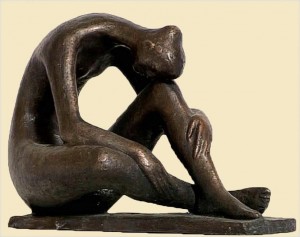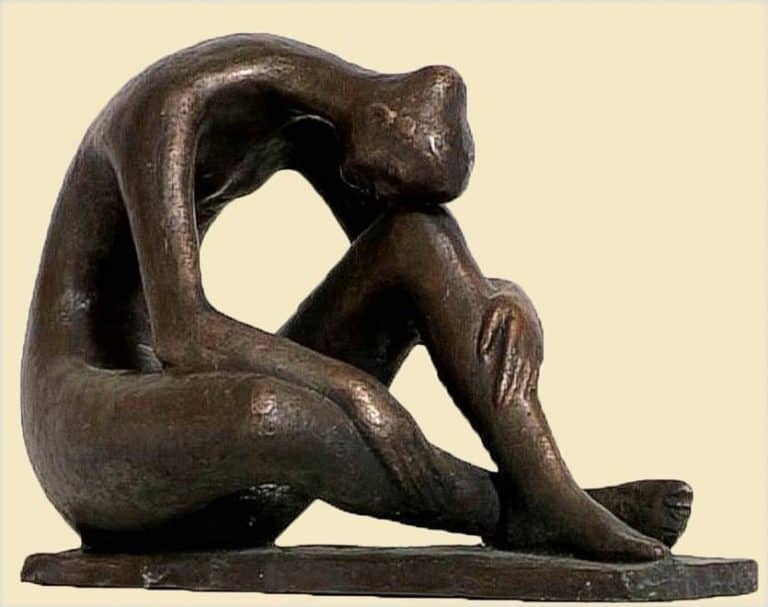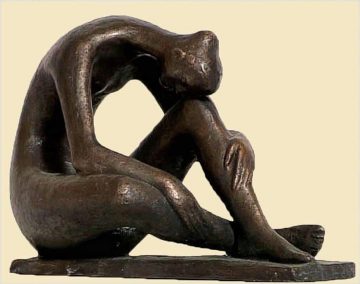 Elisabeth Kubler-Ross was a psychiatrist whose work focused on terminally ill and elderly patients. In her landmark book, On Death and Dying, she lays the 5 stages of grief. These stages have become part of the general consciousness and Dr. Kubler-Ross’ ideas have been applied to all kinds of human loss. The stages are:
Elisabeth Kubler-Ross was a psychiatrist whose work focused on terminally ill and elderly patients. In her landmark book, On Death and Dying, she lays the 5 stages of grief. These stages have become part of the general consciousness and Dr. Kubler-Ross’ ideas have been applied to all kinds of human loss. The stages are:
- Denial
- Anger
- Bargaining
- Depression
- Acceptance
These can happen in any order, and not every one experiences them all. One can also jump from stage to stage. The goal, however, is to process each one and eventually end up at acceptance.
As I’ve had my ‘feminist awakening,’ it sort of feels like a new Me. But that new me has necessitated the loss of a lot of other things: loss of my old ideals, loss of some beliefs and the clarity they bring, a loss of trust in the church. It seems from talking to many fellow MoFems that this is not an uncommon experience.
The loss of trust has been the hardest to work through. The Church has been my home, my world view, my compass for my entire 25 years on this earth. To realize that it has some parts that are not the way they should be has been really hard. And I am grieving. Sometimes my pinging back and forth across these stages has made me feel like I am crazy because few around me understand. So I’m sharing my experiences in hopes that if you out there in blog-land are feeling this grief, you will know you are not crazy, and that you are not alone!
- Denial – when I first started college, I became aware of feminism for the first time and was immediately drawn to it. Misogyny and sexism were wordly vices that I was happy to be aware of and fight against, but any hint that the church was not immune to them would make me very defensive. I clung to the benevolent sexism that permeates our discourse about the ‘moral superiority’ of women. I voluntarily closed my eyes to and internalized so many harmful messages and practices.
- Anger – Gloria Steinem famously said, “The truth will set you free, but first it will piss you off.” I can testify that this is true! Once the cognitive dissonance got to be too much, I had to admit that the Church has more than it’s fair share of sexism happening. And I was mad. How could the institution that I had leaned on, had thought of as my haven from the world, had worked so hard for, be so…well, so worldly? The double standards, the hypocrisy, the double-speak, the over emphasis on not questioning the status quo of gender relations – all of that goes against what I had learned in the best parts of Mormonism.
- Bargaining – Sometimes my bargaining involves praying things like, ‘Heavenly Father, if no one says priesthood = motherhood in Relief Society today I will come back to church next week.’ Sometimes it is with myself. Sometimes it is with those around me. Sometimes I get what I need from it, sometimes not. But it has so far been enough to keep me coming back both to feminism and to the church.
- Depression – This is probably the worst one. About a year after I started getting involved in the MoFem community it all became too much. I asked for my Heavenly Father’s help. And to an extent I got it. However, I still felt caught between my desire to be true to myself, not knowing what that meant, my desire for community, and a deep hollow sadness. It is hard for me to write about it even now. But by the grace of God and with the help of many in the MoFem community I got through it and I try not to look back.
- Acceptance – I am definitely not here, and am not even sure what this stage would look like for me. Does it mean accepting that the church is a sexist patriarchy and I need to suck it up and deal? Does it mean accepting that the church is a sexist patriarchy and I need to work to change it from the inside? Does it mean accepting that actually this is how God wants it to be and being quiet? Does it mean accepting that the church is a sexist patriarchy and I should leave for my own spiritual well-being? I don’t have the answer. I suppose the form of acceptance can change over time. I just hope that I get to some version of it some day.
Having said all of that, I think we can learn a lot through grief: we can learn about mourning with those that mourn. We can learn about ourselves and our strength. We can learn about how to empathize with those around us. It can help clarify what we do and don’t believe. And we can learn a lot about the love of God. Grief is a human and humanizing experience that is best fully lived, not repressed.
What are some of your experiences with grief and the gospel? What have you lost and what have you learned?






8 Responses
For me it started with denial, then research, then obsessive research. I made theology in my head about how change in the Chruch happens, how revelation must happen (God needs a critical mass to accept new revelation before he gives it so you can get personal revelation that is not yet shared with the Church at large until enough members are ready for it) etc. I felt angry and betrayed by my haven as you say. Then I felt I had to reconcile what I learned in Mormonism with what I saw in Mormonism, and decided either I had to believe the leaders fallible or else God just plain mean. I chose to believe leaders fallible and invested in trying to stay active and create change. Eventually I decided to stay active and only try to help those around me who had similar misgivings, as well as to do my callings with my heterodoxy intact. Then Church became miserable, reading news about the Church became miserable. At first I was quiet at Church, then I wasn’t, then I took a break. Eventually I felt I had to choose between not the leaders and God, but between the Church and God, mostly because I felt the gender culture and the us-versus-the-world rhetoric was damaging to my kids. I strove to explore the temple, female priesthood, the goddess, and reconstruct a Mormonism that is non-exclusive to the privileged. That is where things lie, but Church is torture, and I am beginning to believe the gospel is less a priority of the Church than control and wealth. I hope I am wrong. But the toughest thing is finally having to admit that I don’t think the 12 talk to Jesus every Thursday, and that the Church is as human an institution as anything else. It is sad, but it gives me permission to regain responsibility for my spirituality, which I had outsourced, and to rebuild my personal relationship to God. I have also made the best friends of my life through this journey. If in the end I gain a better relationship to God, a thoughtful and loving community, and kids who are unburdened with harmful gender messages, the price of disenchantment feels well worth paying.
This is such an important comment. Thank you, Liz.
I really love this. I am grieving and I don’t know what my acceptance will look like. I’m just glad I’m not alone. Thank you.
Great post. I have experienced this grieving process a lot like you have. My denial stage was the longest. Even when I realized that the world had a sexism problem, I didn’t want to see the church having the same problem. I also bought into the benevolent sexism and tried to gain power as a woman in the church by being the perfect patriarchal daughter. Now I mostly get tossed back and forth between depression and acceptance. I am beginning to feel that my depression is diminishing and my peace is growing so I think I am headed in the direction of acceptance. For me it is starting to look like seperating myself from the church. That doesn’t necessarily mean that I won’t go to church or continue to try to effect change. It just means that I am less emotionally attached. I can live my life and raise my children to be well-adjusted adults regardless of where the church is at. I will still mourn with the people I love and celebrate their successes, but I guess I am getting to the point where I can consider them less of my problems and successes which gives me peace. I still have a ways to go though. I appreciated your thoughts because it is nice to know you are not alone in your grief.
Thank you so much for this, Jess R. As I was reading, I recognized so much of my own church experience that it made me tear up. I think for a long time, I bounced easily into denial– I probably still do sometimes, but it always brings me back to the same place– which is depression. I think I haven’t come to the place of acceptance because I still so very much want the church to change– to love me, because I am female, and to allow me to serve God and others as freely as men in the church can.
It makes me wonder if acceptance means leaving the church…. or if it is something more like giving oneself entirely to Christ, and remaining in the church, in hopes that Christ will heal the church from its organizational and cultural sins. No church is perfect. And on my brave days, I can leave it to Christ. But it is still hard.
Thank you for writing this. I needed it to remind and help me to understand where I am, and how I might find something in processing this to bring me to acceptance, and thus, possibly more joy in Christ.
Thank you. I really needed this. Thank you.
I love this framework, particularly because it validates anger. I hear so many dismissive statements about “angry feminists,” as though anger isn’t a valid and productive emotion, or that the only “good” feminist is one who isn’t angry. To skip/dismiss anger is to skip an entire step in the process! We do ourselves and others a disservice when we don’t allow people to be angry, and when we don’t validate them in their anger.
I learnt a very valuable and hard lesson a few years ago. It was at a time when I felt very hard done by by a family member. They had hurt me and I felt sooooo much hatred against them. One day I realised that it was running my life. I had allowed my hurt and hatred to control me and my happiness.
You see I couldn’t change what had happened, I couldn’t change who he was or what he had done, but I could change the way it affected me.
I had to humble myself quite drastically and I realised that the person I was hurting most was myself.
I was in this movement, I was all for women recieving the priesthood until I realised that I was losing myself, I was becoming hard and bitter towards the church and so I decided that enough was enough.
For me the church is what is. It’s still the same church I accepted years ago and that’s the point. It doesn’t change. I know that the church isn’t perfect but I have accepted it and once I did I felt like a weight had been lifted off of my shoulders.
I didn’t try and make a pact with God and I didn’t test him, I simply accepted him and if accepting him means putting accepting the church as it is then I will do it time and time again.
I am a mormon and a feminist who is perfectly ok with not having the priesthood and that’s the way it will stay for me.
I agree with other commenters that this is such a helpful framework. I still remember mentioning to Laurel Ulrich once that she doesn’t seem angry, and asking her if she ever feels that way. The first thing she said is, “It comes in waves.” The second thing she said was, “Be patient with your anger.” I found both to be remarkably helpful.
In my own trajectory, I was in the sorrow stage for at least a year. It meant that I cried almost every Sunday for almost that long. Mostly that there were never any references to Heavenly Mother when I went to church, even in places where there should have been. I couldn’t believe that I was the only one in female spaces who wanted to know how to draw closer to my female divine.
And so I started speaking about Heavenly Mother myself, which helped a great deal. I might be in the sorrow space again, or at least a quiet one. It is difficult to speak.